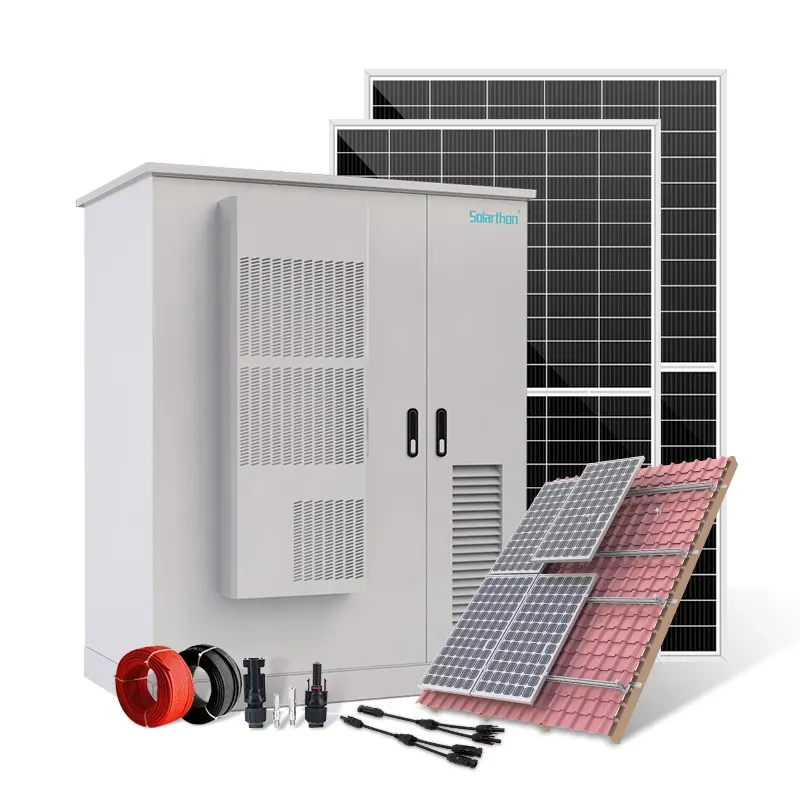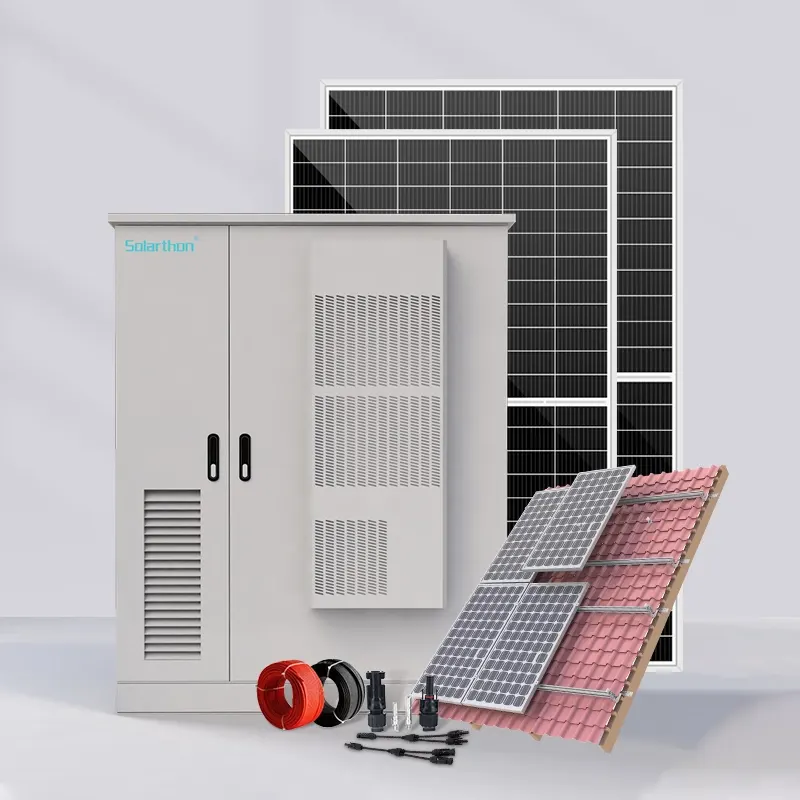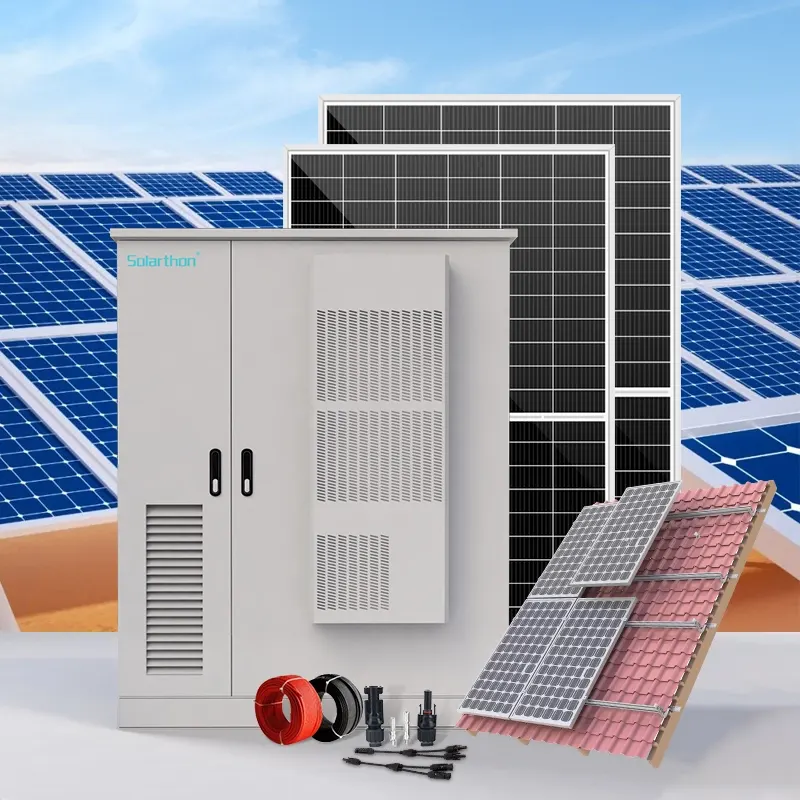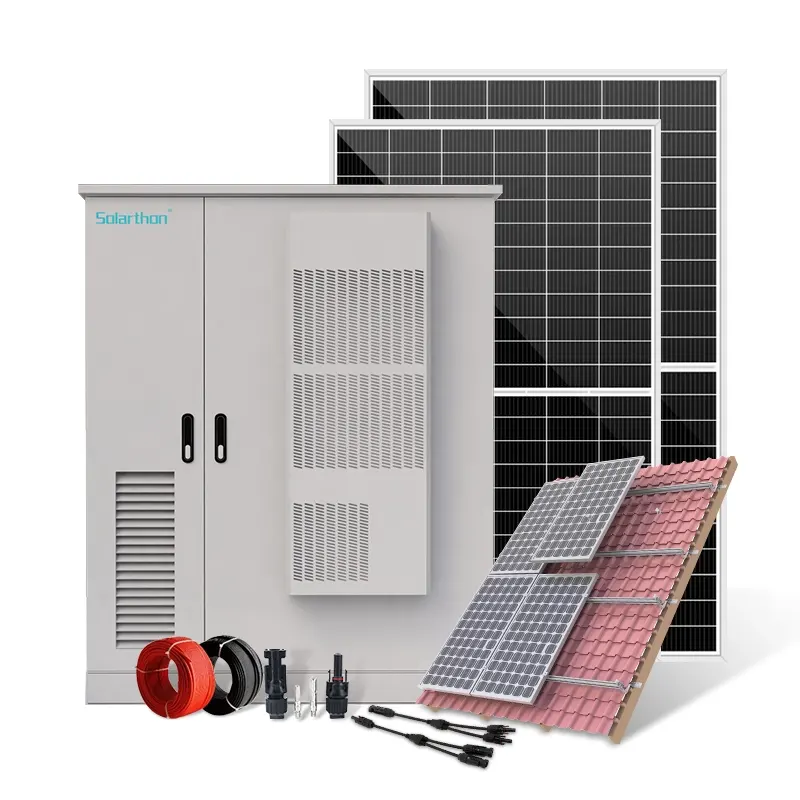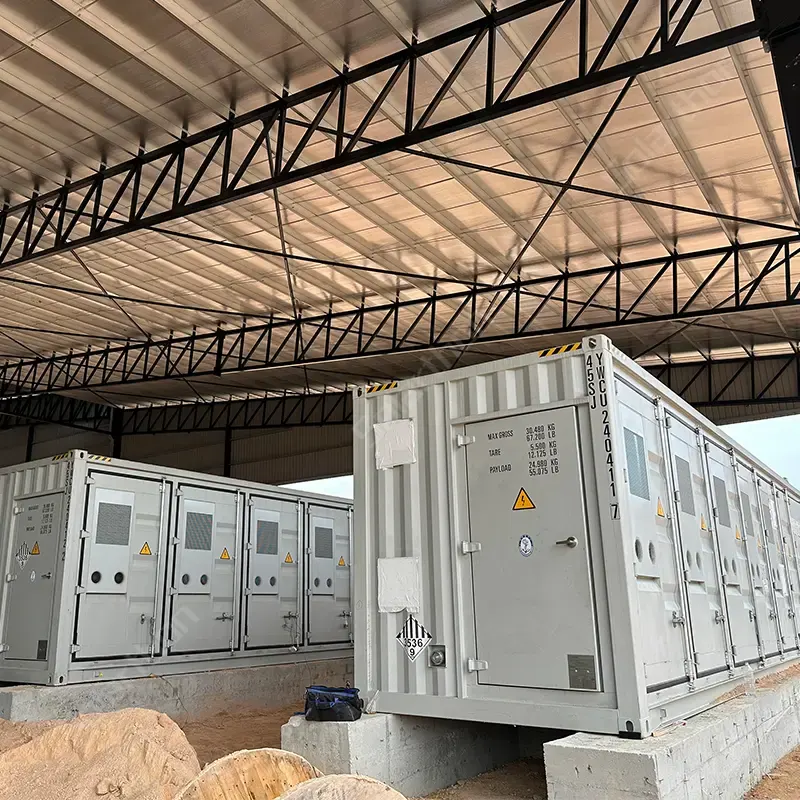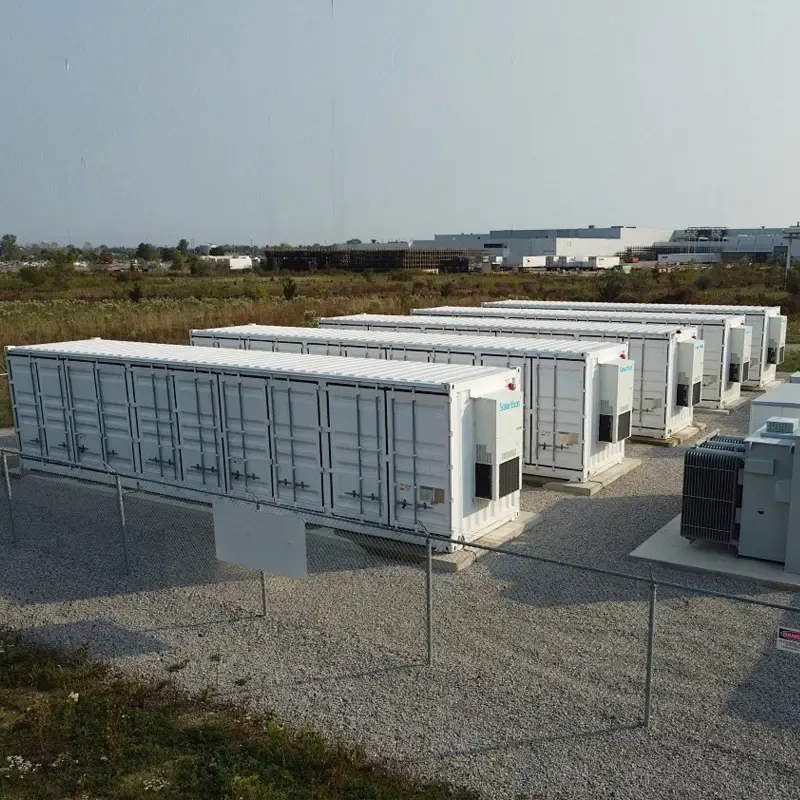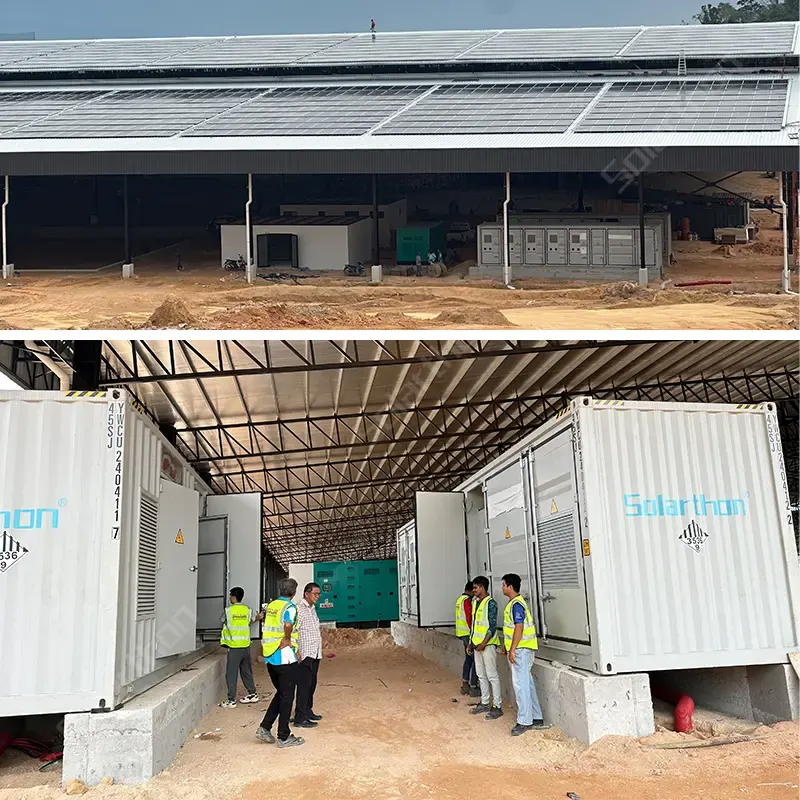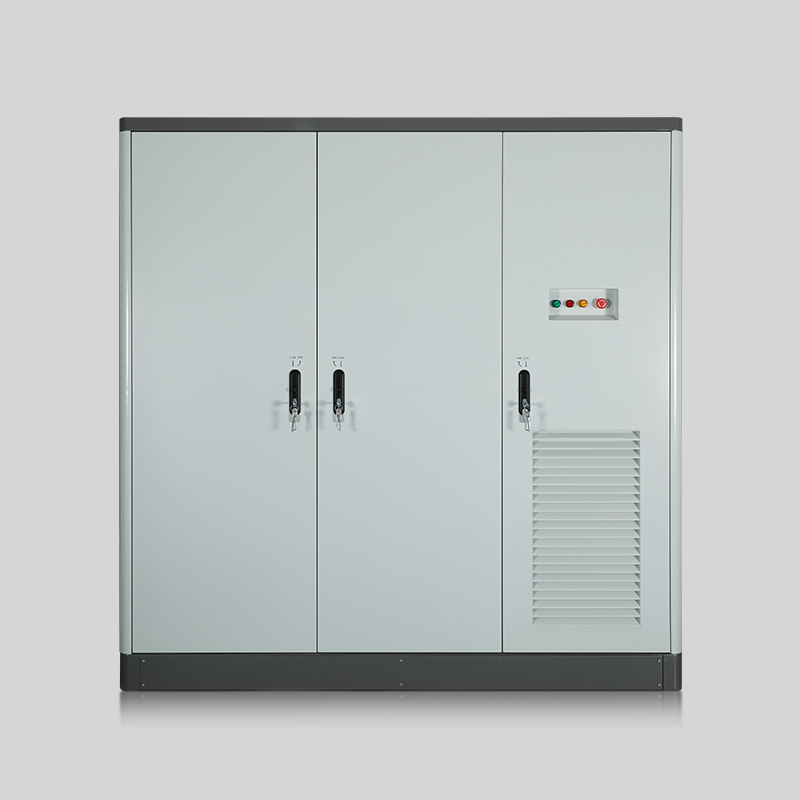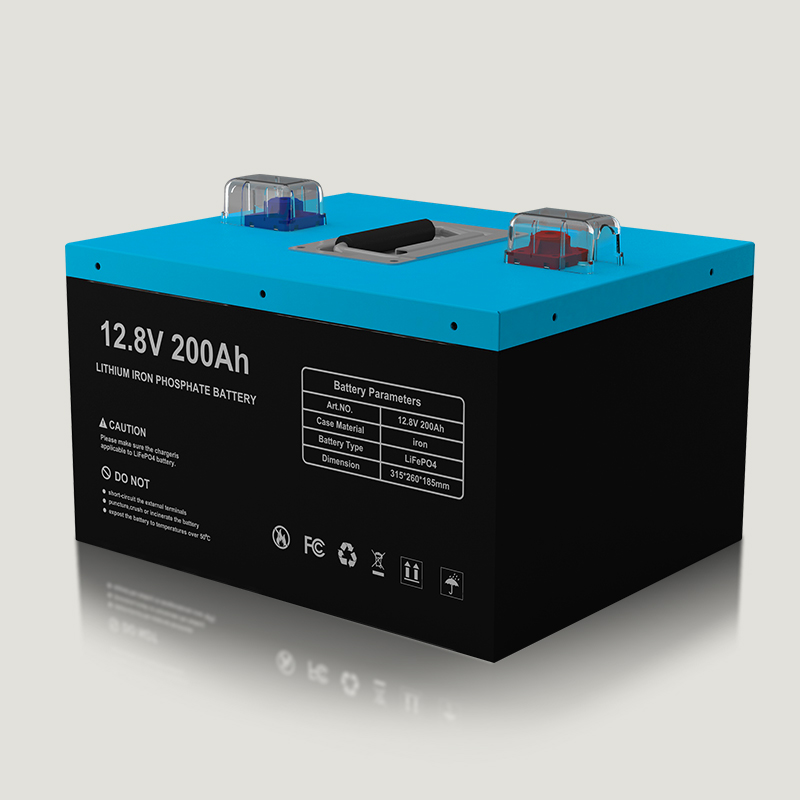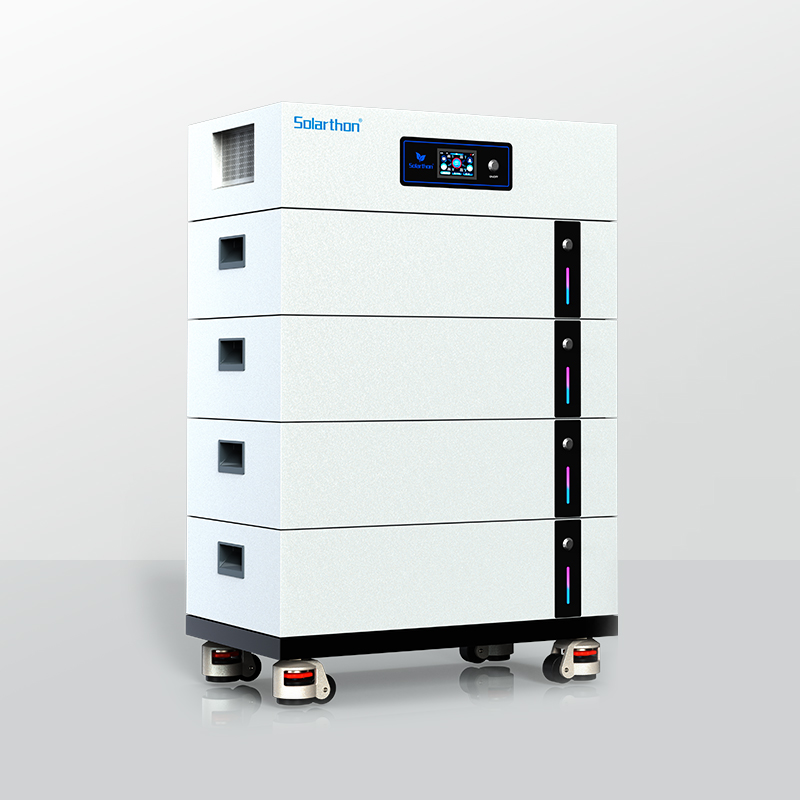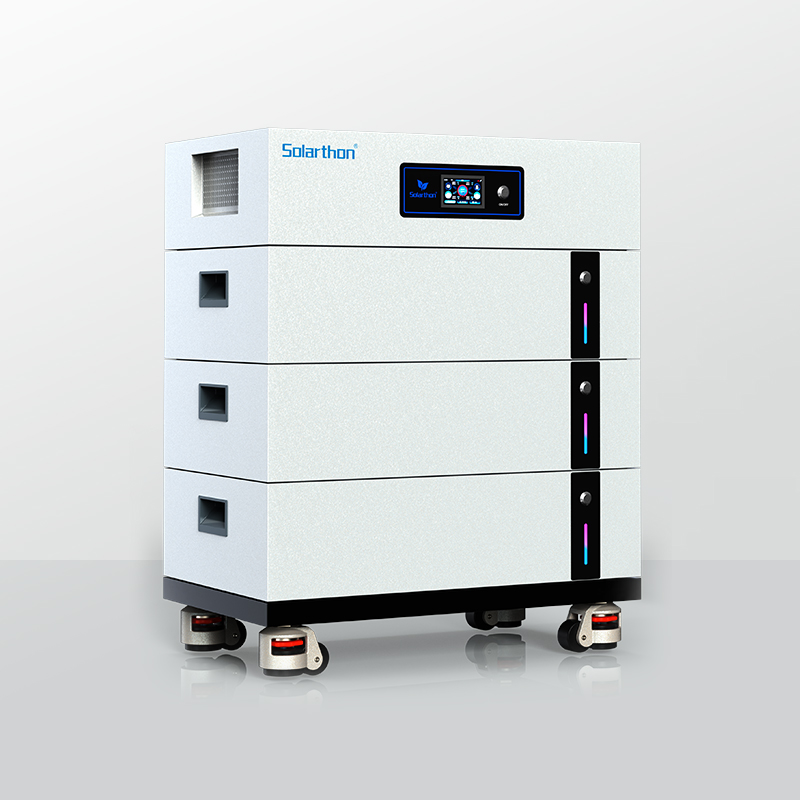
50KWH ESS with 30KW PCS and Solar Charging System Commercial Battery Storage Industrial Solar Panels System
An energy storage cabinet is a device that integrates an energy storage device and a power management system, which is mainly used to store electrical energy and release it when needed.
The concept of an energy storage cabinet is to centrally store electrical energy in order to supply power during peak power demand or in case of emergency. It mainly consists of a battery, an inverter, and a control system. The battery is the core component of the energy storage cabinet, which can convert electrical energy into chemical energy and store it. The function of the inverter is to convert the stored DC energy into alternating current energy for the use of various electrical equipment. The control system manages, optimizes energy use, and protects battery life.
50KWH ESS with 30KW PCS and Solar Charging System
An energy storage cabinet is a device that integrates an energy storage device and a power management system, which is mainly used to store electrical energy and release it when needed.
The concept of an energy storage cabinet is to centrally store electrical energy in order to supply power during peak power demand or in case of emergency. It mainly consists of a battery, an inverter, and a control system. The battery is the core component of the energy storage cabinet, which can convert electrical energy into chemical energy and store it. The function of the inverter is to convert the stored DC energy into alternating current energy for the use of various electrical equipment. The control system manages, optimizes energy use, and protects battery life.
Provide various application solutions.
Fast delivery and installation,we take care of the entire delivery and installation process, en-suring that the batteryies are installed safely and correctly.
Remote monitoring services to ensure that the system is operating efficiently and to iden-tify potential issues beforethey become major problems.
Energy storage system and equipment-level 3D visualization, real-time presentation system running status and parameters
Realize energy storage anytime and anywhere through the mobile APP client Station operation status check and maintenance management.
Realize regular storage and distribution of charging and discharging data of energy storage power stations Analysis of power plant investment and operation costs and beneddits in different dimensions.
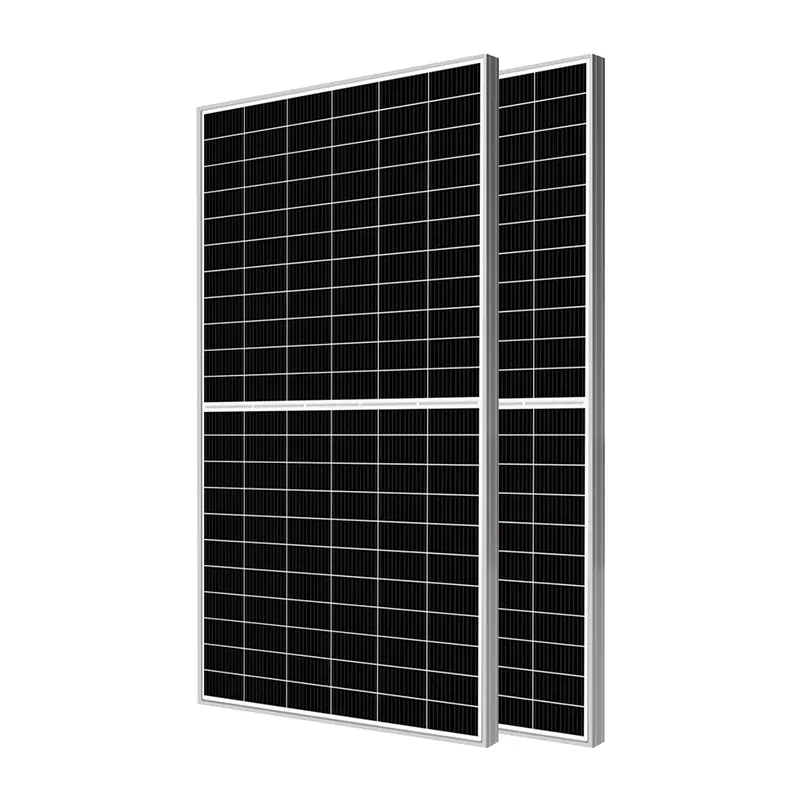
550W mono Half Cell PERC solar panel
Vmp: 41V Voc: 49.2V Imp 13.45A
Size: 2279*1134*35mm
weight: 28.3kg
25 years life span
Linear performance: 25 years 80 % ; 10 years 90%
Connection: 14 pcs in series
50KWH ESS with 30KW PCS and Solar Charging System
Energy Storage System(ESS)
LiFePO4 Battery: 512V/100AH
Battery Voltage Range: 448~584V
Power Conversion System(PCS)
Rated Power: 30KW
Rated AC Output Voltage: 380V, 50Hz
AC Input Voltage Range: 380V
DC Input Voltage Range: 320~850V
Solar Charger
Max. PV Charge Power: 19.2kW+19.2kW
Max. PV Input Voltage: 850V
MPPT Voltage Range: 200-830V
Energy Management System(EMS)
LCD monitor, RS485, CAN, TCP/IP
Outdoor Three-cabin Cabinet
Size: 2010*1600*1000mm
Air Conditioner, 600W, 2 sets
Fire Fighting System
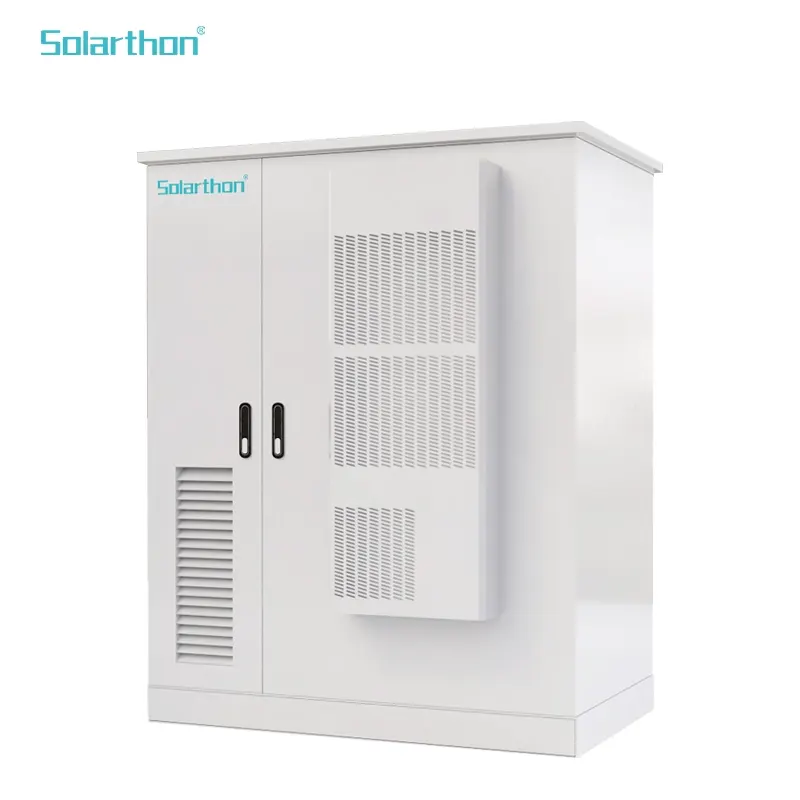
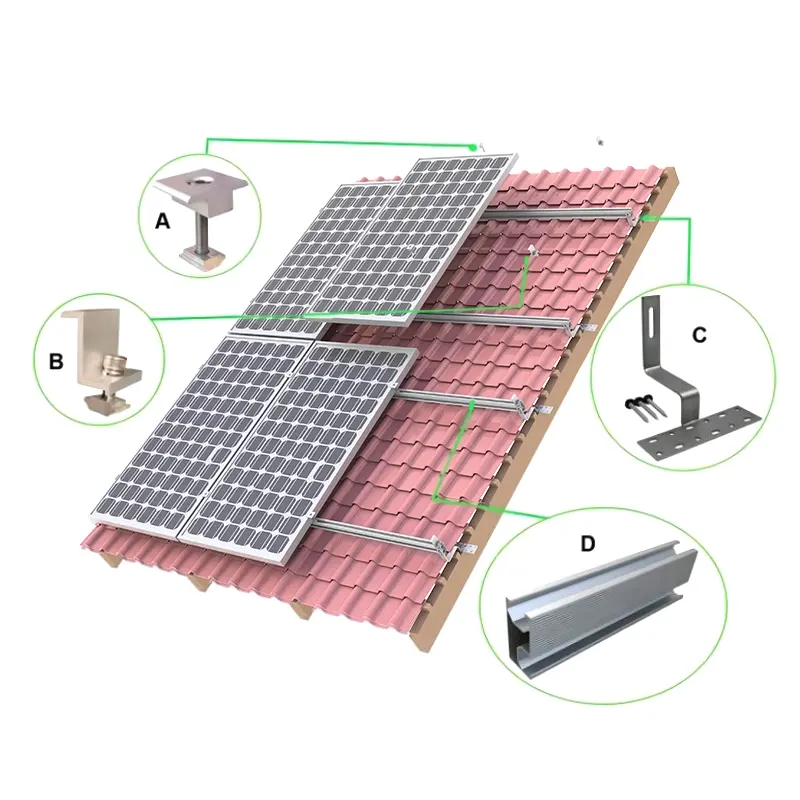
Slope Roof Mounting Structure
wind load: 55m/s,snow load:1.5kn/m2
structure: Anodized Aluminum
MC4-2, Positive PoleMC4-2, Negative Pole
6mm² PV cable: 100m, Red
6mm² PV cable: 100m, Black
MC4 Connector, Male Plug
MC4 Connector, Female Plug
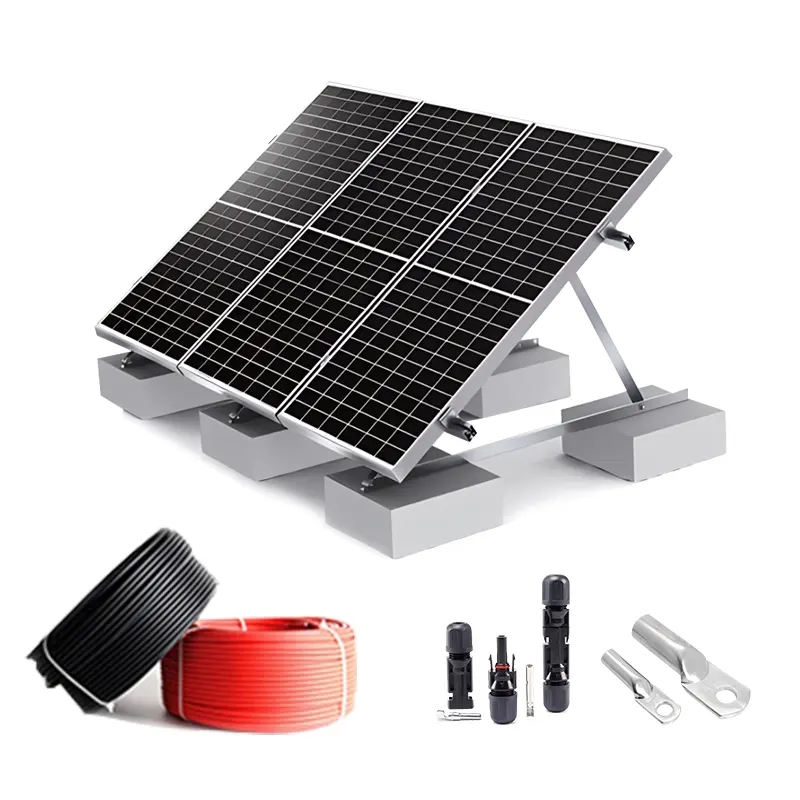
Product display
Related Products
Product Inquiry
